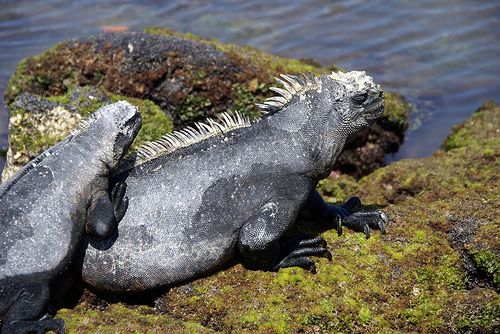Disease-carrying mosquitoes are threatening the unique animal inhabitants of the Galapagos Islands, according to research carried out by the University of Leeds in the UK.
Galapagos species have evolved in isolation for so long that they’ve lost their immune defences, leaving them vulnerable to infections carried by the newly-arrived mosquitoes.
Researchers found mosquito stowaways on many of the recently-arrived tourist flights to the islands. Although the mosquitoes don’t arrive in great numbers they are able to survive and breed with native mosquitoes. It is this mingling of populations, brought about by the increasing Galapagos tourist trade, that could introduce new diseases to the Galapagos.
Tourism undoubtedly brings benefits to the human inhabitants of the Galapagos, but it also brings many risks. Rats arriving on cruise ships are eating their way through the eggs of native birds, including ground-nesting Galapagos penguins; introduced pigs destroy turtle and iguana nests; and goats chomp their way through much of the specialised native plant-life. Now regular introduction of mosquitoes threatens to bring new diseases to blight the islands.
The animals that inhabit the Galapagos Islands in the South Pacific have evolved into unique forms during their long isolation from the mainland: nowhere else on the planet can you find the bizarre marine iguanas or the varied Galapagos mockingbirds that inspired Darwin! Unfortunately, the isolated conditions also led to the animal’s greatest weakness – their vulnerability to introduced diseases and predators.
The Galapagos Islands have a special place in the history of science as one of the places that helped Charles Darwin to develop the theory of evolution. It would be a tragic loss if the unique animals the islands harbour were destroyed through our carelessness. Sadly, it may only be a matter of time.

Marine iguanas: probably the weirdest lizards on Earth...
Image credit: flickr/putneymark. Used under this license
